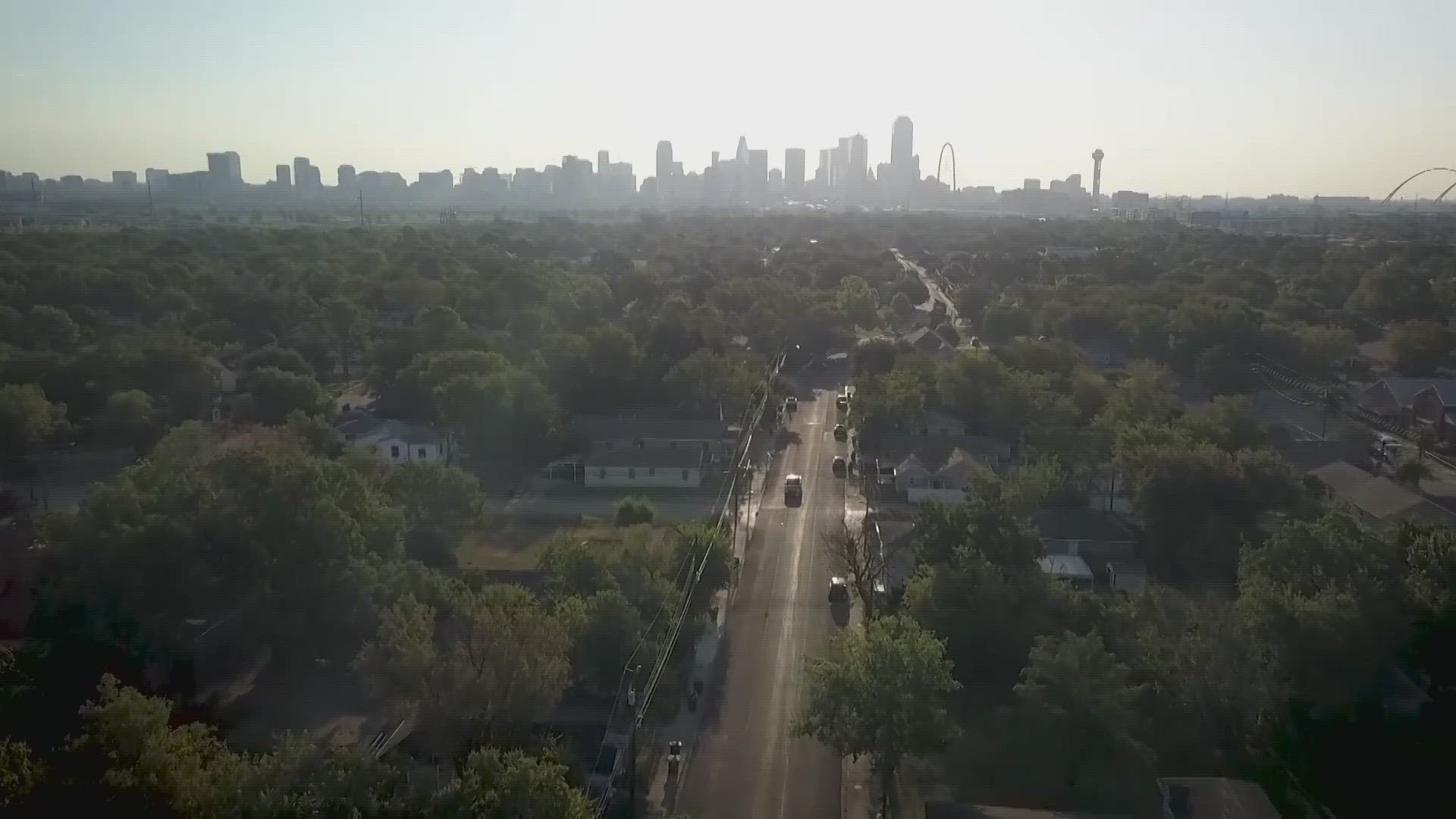DALLAS — Four years after first taking up the issue, Dallas City Council voted just before midnight Wednesday to ban short-term rentals or STRs like Airbnb and Vrbo in areas with single-family zoning.
Roughly 1,000 STRs are currently registered in single-family areas and would now become illegal with enforcement beginning in December. Thousands of others are estimated to be currently operating across the city. Until now, STRs operated without any regulations to manage them.
Roughly 70 people spoke for more than two hours on the divisive issue with council members debating for three more. Critics of STRs lined the council chambers in shirts displaying a message of ‘Homes Not Hotels’.
“You’re ignoring current zoning and abdicating responsibility,” Dom Thomas told the council. “No one is coming forward who lives next to an STR begging you to keep them around.”
“I want to thank the residents who have shown up,” Councilman Omar Narvaez said. “You haven’t given up. You’re fighting for your neighborhoods.”
Council members in favor of regulation instead of the ban said registration would create new revenue for the city and be more likely to withstand a legal challenge or new legislation.
“We have to find a solution that’s going to survive for years to come and provide some kind of certainty for our residents,” Councilman Chad West said.
At the same time, city council approved regulations for how the city can manage STRs in areas where they’re allowed through zoning.
The regulations require STRs to register annually and pay hotel occupancy taxes. There would be a two-strikes-and-out policy for violations, and the maximum number of people in an STR was set at 12 and there must be one parking spot per bedroom.
City council voted 8-7 to prevent current STRs from being grandfathered in and allowed to continue operating.
Denise Lowry has rented the two-person cottage behind her East Dallas home more than 100 times and has repeatedly advocated for STRs.
“It’s my livelihood and it’s my joy,” Lowry said. “The whole community is very strong and if the investors are going to ruin it for us, I’ll be very mad.”
Councilmembers in favor of STRs repeatedly pointed to comments from code enforcement management that the ban approved would be tougher to regulate than a registration system.
“If you don’t think we can regulate them now, I don’t know how you expect us to do that,” Councilman Adam Bazaldua said of the ban. “It’s not enforceable. What’d I’d like us to do is solving for an issue.”
Much of the divide centered around crime with those against STRs claiming homes used for parties were leading to increased crime.
“Twenty percent of STRs have received a 311 or 911 call in the last 4 months compared to 9% for non-STRs,” Councilwoman Gay Willis said. “We cannot ignore that.”
STR supporters argued that 80% of STRs not creating any 311 or 911 calls in the first quarter of this year was evidence they weren’t creating crime. They added some owners rely on the income their rental creates.
Olive Talley helps lead the Dallas Neighborhood Coalition and says individual operators are a minority compared to investors buying up homes to rent and creating more of a housing problem.
“They are being put out as the face of the STR industry. They are not,” she said. “We don’t have a lodging problem. We have a housing crisis here.”
“These investors, these companies, these major hotel corporations can purchase at full far or above asking price and they can pay cash,” Narvaez said. “There’s no way for regular folks like you can me to be able to compete in that kind of market.”
Both sides have claimed the other’s proposal will lead to lawsuits, which may be the most likely next step in the STR saga.

